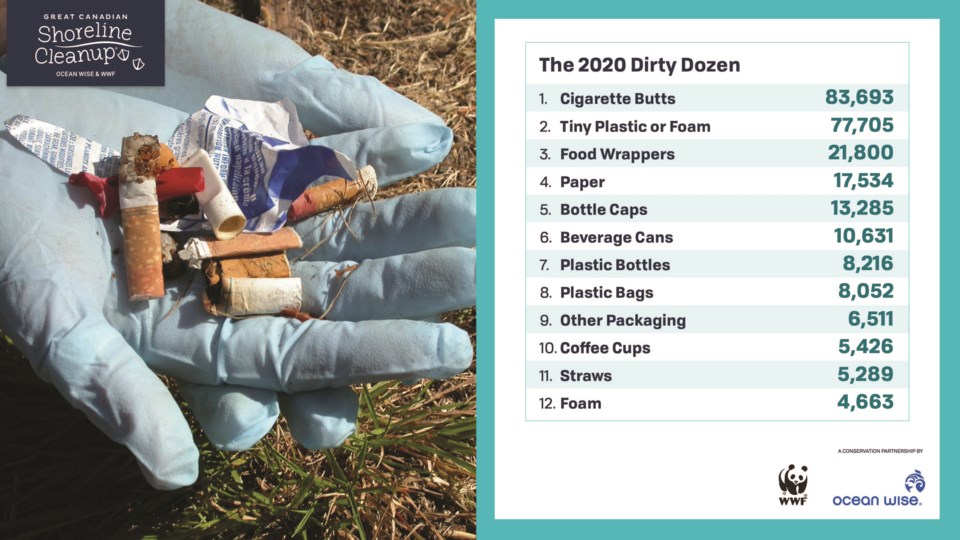The gradual return to normal living under the B.C. government’s phased restart plan will be an opportunity to resume some of the simple pleasures we’ve all missed out on and also to shed some of the unfortunate habits that have developed during the pandemic. One of these is the proliferation of single-use products that are burdening our landfills, littering our streets and dirtying our pristine beaches.
Organizers of the Great Canadian Shoreline Cleanup, reporting Wednesday on last year’s results, found the percentage of single-use food and beverage packaging nearly doubled, increasing from 15.3 per cent of all litter in 2019 to 26.6 per cent in 2020.
Outreach specialist Julia Wakeling said organizers were “startled” by the shift. “We suspect the change may be one of the many implications of COVID-19, including more people ordering restaurant takeaway and consuming more individually packaged foods,” she said.
In real numbers, that’s well over 10,000 kilograms of packaging – and last year’s cleanup was scaled down considerably from past years due to pandemic restrictions. Had the cleanup been as large as the previous year’s, the total amount of packaging, based on the new percentage, would be closer to 40,000 kilograms.
Not surprisingly, last year’s cleanup also saw a new blight on the beaches – masks and other personal protective equipment. There was no category last year on their data cards for volunteers to track the volume of PPE-related litter, but one was created this year and Wakeling said she expects the results will be “very interesting.” Which means: not good.
We can only hope that as COVID recedes, so will the use of these products – or at least that as people return to a healthier level of socialization, they will cure themselves of such anti-social behaviour as dropping their trash wherever they please.
Also on Wednesday, the packaging firm RAJA UK released a list of tips for reducing plastic consumption: ditch the single-use coffee cups and water bottles, opt for local refill shops or bulk food stations in grocery stores, shop at farmers’ markets, switch to bar soap instead of liquid soap, and pack your own lunches in reusable containers.
Small things, but they all add up.



